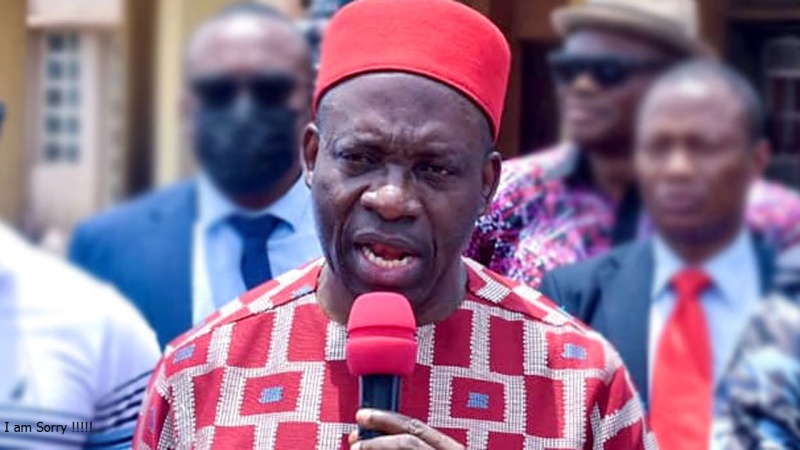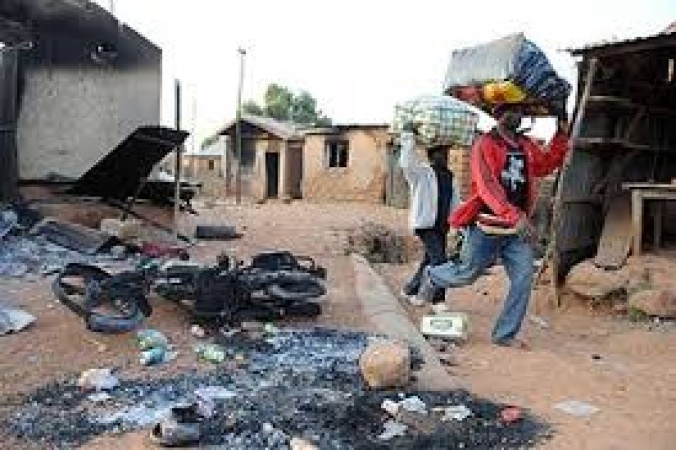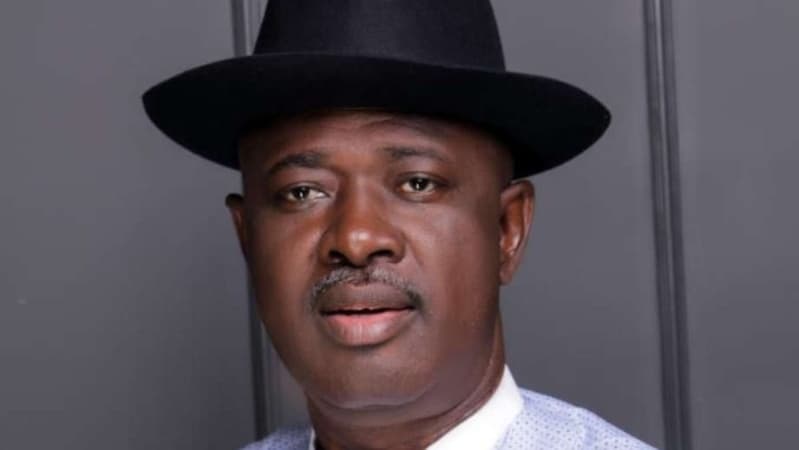

























Loading banners


NEWS EXPRESS is Nigeria’s leading online newspaper. Published by Africa’s international award-winning journalist, Mr. Isaac Umunna, NEWS EXPRESS is Nigeria’s first truly professional online daily newspaper. It is published from Lagos, Nigeria’s economic and media hub, and has a provision for occasional special print editions. Thanks to our vast network of sources and dedicated team of professional journalists and contributors spread across Nigeria and overseas, NEWS EXPRESS has become synonymous with newsbreaks and exclusive stories from around the world.

Minister of state for petroleum resources, Heineken Lokpobiri
Heineken Lokpobiri, minister of state for petroleum resources (oil) says Nigeria?s Federation Account Allocation Committee (FAAC) now shares over N2 trillion every month among the three tiers of government, following the removal of fuel subsidy by President Bola Tinubu?s administration.
Lokpobiri, who disclosed this at the 9th edition of the 2025 OTL Africa Downstream Energy Week in Lagos, said the bold decision to end the decades-long subsidy regime had freed up enormous fiscal resources that are now being redirected to critical infrastructure and development projects across the country.
?Before subsidy removal, FAAC shared less than N1 trillion monthly. Today, we are sharing over N2 trillion because the subsidy burden has been lifted,? the minister said. ?This shows the policy was necessary to put Nigeria on a path of sustainability.?
The minister noted that the decision to remove fuel subsidies was one of the most courageous decisions taken by any Nigerian leader in recent history. He praised President Tinubu for demonstrating ?political will and economic foresight? despite initial resistance from citizens and political stakeholders.
According to him, the new fiscal reality reflects the ?freedom of movement? in government finances, allowing states and local governments to access more revenue for people-oriented projects.
?The subsidy regime was not sustainable. We were practically subsidising the entire West African region,? Lokpobiri said. ?With its removal, more funds are now available for roads, healthcare, education, and other infrastructure that directly benefit Nigerians.?
Lokpobiri told delegates that subsidy removal had also opened up the downstream petroleum sector to private investment, competition, and innovation, creating a more transparent and market-driven environment.
He said the previous subsidy system discouraged private sector players from investing in refining and distribution, as government pricing distortions created uncertainty and losses.
?The downstream can only grow when the right incentives are in place,? he said. ?Subsidy removal has liberalised the sector, allowing investors to come in, compete fairly, and drive efficiency. That?s how we can achieve price stability, sustainability, and affordability.?
Lokpobiri praised indigenous refiners like Dangote Petroleum Refinery and Nigerian National Petroleum Company Limited (NNPCL)?s initiatives for their ongoing efforts to expand local refining capacity, saying such investments would save foreign exchange, create jobs, and strengthen Nigeria?s energy security.
He confirmed that the government would continue to provide an enabling environment for downstream operators through clear regulatory frameworks, fiscal stability, and investor-friendly policies.
Speaking on the global energy transition debate, Lokpobiri cautioned African countries against prematurely abandoning their oil and gas resources in pursuit of Western-driven climate targets. He said recent data from the International Energy Agency (IEA) underscores the continuing importance of hydrocarbons to global energy security.
?The IEA has now admitted that the world must invest at least $540 billion annually in oil and gas to avoid an energy crisis by 2050,? Lokpobiri said. ?This is a major shift from their earlier position. It shows that hydrocarbons will remain central to meeting the world?s growing energy demand.?
He emphasised that Africa, with a population exceeding 1.5 billion people, represents a vast energy market that must be developed responsibly to lift millions out of poverty.
?Africa currently imports over $120 billion worth of refined petroleum products annually. This shows we have both the market and the demand,? he said. ?The task ahead is to build the infrastructure, attract the capital, and refine our products locally.?
Lokpobiri added that Nigeria was positioning itself as a regional hub for petroleum products through the West African Gas Market initiative, which seeks to expand cross-border energy trade and enhance energy access within the subregion.
Lokpobiri reiterated that Nigeria?s approach to the energy transition must be guided by national realities, not external pressure. He said while developed countries were responsible for over 97 percent of global carbon emissions, Africa contributed only about 3 percent, yet faces the greatest restrictions in accessing climate finance.
?Even if Africa stops emitting today, global warming will not stop,? he argued. ?The West that caused the problem is slowing down its commitments, yet wants Africa to halt its development. That?s not fair.?
He called for a unified African voice in international energy forums, urging leaders to push for equitable energy financing and resist attempts to ?weaponise capital? against developing economies.
?We cannot depend on pledges that never materialise,? he said. ?Billions of dollars have been promised to Africa in climate funds, yet little has been disbursed. We must find homegrown solutions to finance our energy future.?
The minister highlighted that with the right policies, Nigeria can attract massive foreign investment across the upstream, midstream, and downstream segments. He disclosed that the petroleum ministry was already engaging potential investors from the United States, Europe, and the Middle East who have expressed interest in Nigeria?s expanding energy space.
?In the past two years, we?ve seen increased investor confidence,? he said. ?During my recent trip to the U.S., we signed letters of intent with several energy firms. The capital is available, what we need is to make it accessible and transparent.?
Lokpobiri emphasised that Africa must leverage its vast natural resources to drive industrialisation, build regional energy value chains, and reduce dependence on imported fuels.
?If we harness our oil, gas, and human capital effectively, Africa alone is enough to sustain global growth,? he said. ?The focus now should be on expanding investment, not retreating from our resources.? (BusinessDay)